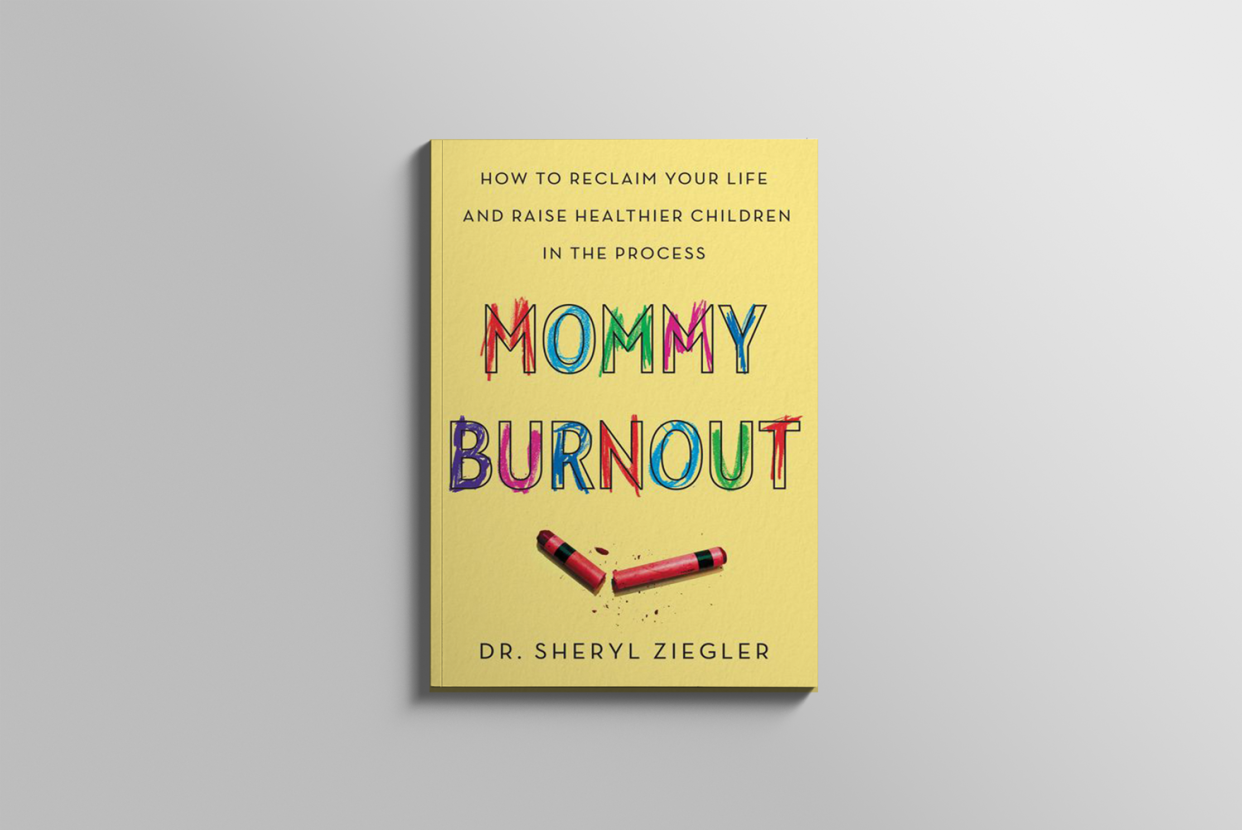Is 'mommy burnout' making mothers miserable?

“I love my daughter, but sometimes I want to ‘quit’ being a mom,” a friend recently told me. Before I could respond, she asked, “Does this mean I’m a bad mother?”
Although my friend felt sheepish about her disclosure; her feelings aren’t uncommon. As a mother, I’ve also fantasized about taking a vacation from parenting — internally referring to my dream sabbatical as a “Momcation.” And in my job as a psychologist, I’ve spent countless hours counseling women, helping them sort through the complicated feelings that can come with having children.
Even though my friend felt inadequate for her disclosure, she wasn’t a “bad” mom for needing a break. Far from it. In fact, she may have been suffering from a condition that plagues mothers the world over — burnout.
Coined by the psychologist Herbert Freudenberger in the 1970s, burnout is “a state of mental and physical exhaustion caused by one’s professional life.” According to Freudenberger, burnout isn’t a mental illness; it’s a stress state characterized by symptoms such as fatigue, irritability, and insomnia.
While it’s no secret that professionals who constantly care for others, like first responders, physicians, and nurses, can suffer from mental and physical exhaustion, recent research suggests that parents can also succumb to burnout.

In a recent study, 1,723 parents completed a series of questionnaires that measured their stress levels and assessed them for symptoms of burnout. Of the parents surveyed, more than 10 percent reported suffering from it, with mothers reporting more signs of exhaustion than fathers. The researchers also found that highly burned-out parents often saw their kids as a source of stress, and as a result emotionally distanced themselves from their children.
Sheryl Ziegler, a child and family psychologist and author of the new book Mommy Burnout (out Tuesday), tells Yahoo Lifestyle, “Many of today’s mothers feel stressed and overwhelmed.” Why? “Because ‘busy’ has become a way of being.”
Ziegler says she’s observed this unhealthy pattern for nearly a decade.
“Working moms, stay-at-home moms, and single moms told me how depleted, exhausted, and inadequate they felt. It didn’t matter if they had small children or teenagers; they all felt similarly.” Ziegler says. “They also felt like failures and frauds because they didn’t realize that other moms were also struggling.”
Ziegler’s observations led her to hypothesize that these mothers were suffering from a unique syndrome, known as mommy burnout. And even though parenting has never been easy, she believes cultural changes have contributed to the rise of maternal misery.
“We live in a kid-centric culture where parental self-care is undervalued. Because of this, mothers often believe that putting their needs first means family comes last,” she says.

To make matters worse, “perfect” images of motherhood on Instagram and Facebook can taint the reality of what it means to raise children. And unfortunately, these false images can feed the notion that mothering means always sacrificing one’s own needs to take care of others.
This state of physical and emotional depletion may look like depression, but Ziegler says burned-out mothers aren’t necessarily depressed.
According to Ziegler, signs of mommy burnout may include forgetfulness, tearfulness, irritability (i.e., snapping at your kids), fantasizing about a “mommy escape,” and feeling resentful of your partner and other moms (especially when you believe they have more freedom than you do).
“Depression often affects one’s ability get out of bed each morning and function day-to-day. These moms are functioning. They’re going to work, taking their kids to the park, and doing household chores — but they’re often miserable,” she says.
Plagued by feelings of insecurity, these women often strive for perfection. And in an attempt to become “Supermom,” they add additional play dates, carpools, and sleepovers onto their “to do” lists.
But exhausted from constantly “giving” to others, these mothers begin to feel resentful, forgetful, and preoccupied. And because of fatigue, activities like date nights and socializing with friends start to feel burdensome instead of enjoyable. Essentially, these women have nothing left to give.
Unfortunately, burnout doesn’t go away on its own, and left untreated it can damage one’s physical and psychological well-being, leading to severe health concerns, such as depression, anxiety, high blood pressure, and diabetes. But for many exhausted mothers, recovering from burnout may seem impossible, because mothering isn’t a job one can quit.
But Ziegler says there’s hope. She recommends simple self-care strategies that can alleviate stress in healthier ways.
“Moms need permission to make themselves a priority. Taking a walk, talking to a friend, and reaching out for help can make a world of difference,” she says.
Studies also show that forming close friendships can benefit mothers, helping them to feel more confident. Families can create these communities by sharing responsibilities and resources. To ease the expense of childcare costs, they can set up a babysitting exchange or a nanny share. Parents can also arrange for neighborhood potlucks and movie nights. Planning these social events can also help to alleviate the loneliness that parenthood can bring.
According to Ziegler, “When families help care for each other, moms often feel less harried, which is the key to preventing and fighting off burnout.”
Of course, fathers can suffer from burnout too. But that’s another story.
Read more from Yahoo Lifestyle:
Behind the dangerous ‘miracle’ bleach concoction one mom made to ‘cure’ her daughter’s autism
‘I hope this isn’t the day I’ll have to use this’: Teacher gets real about carrying a ‘lockdown key’
Follow us on Instagram, Facebook, and Twitter for nonstop inspiration delivered fresh to your feed, every day.
